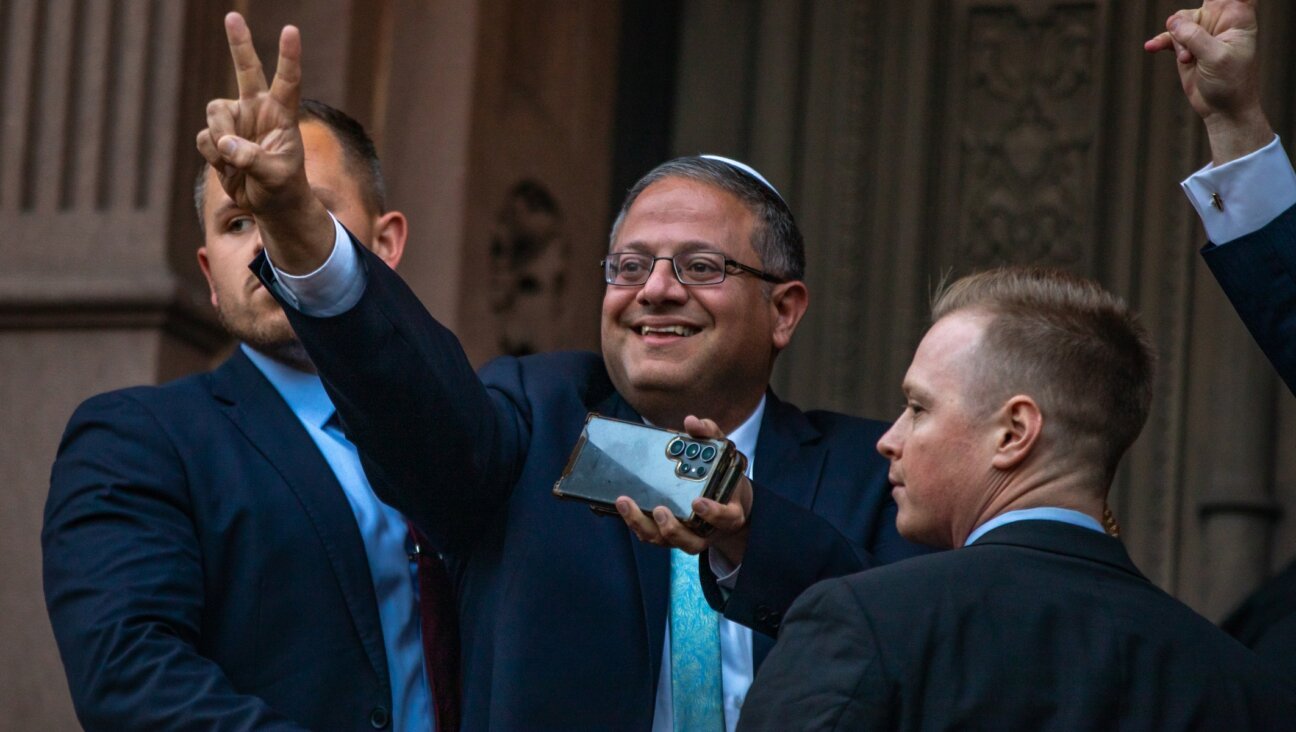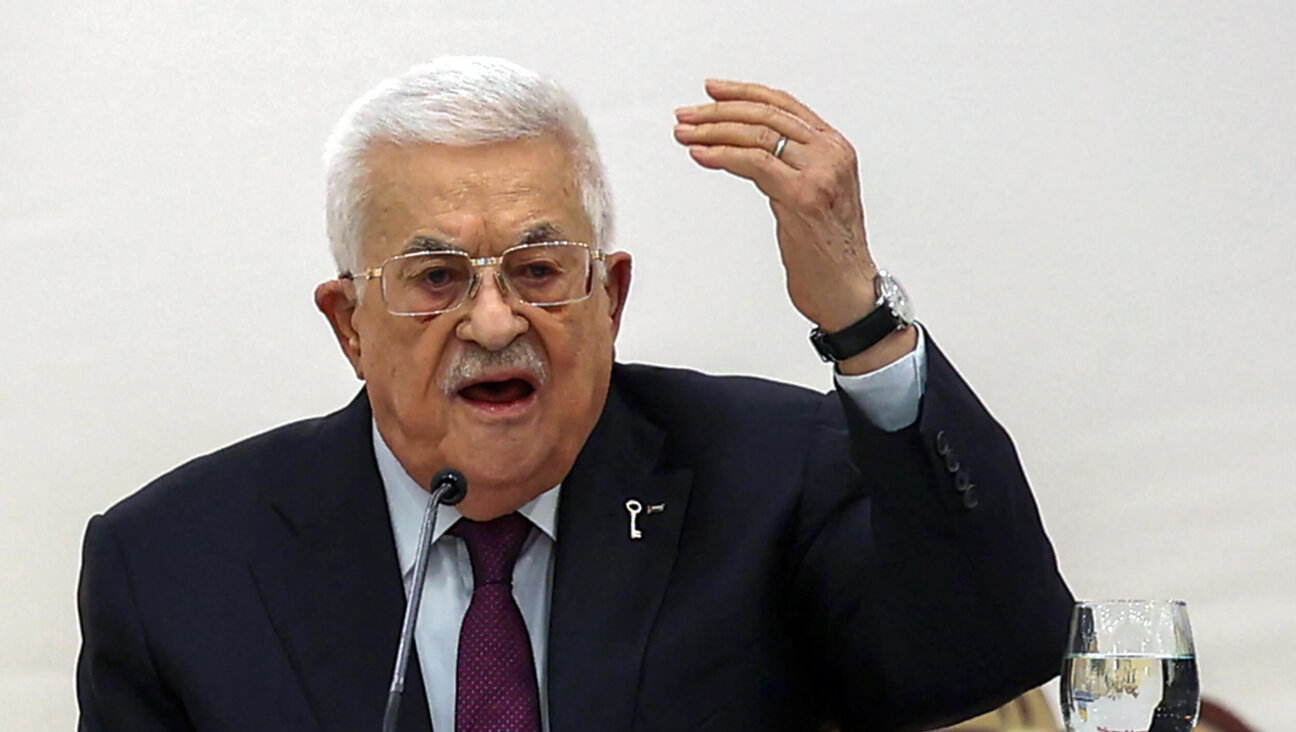Generation to Generation, Our Changing Judaism
We have become a little clan over the years. There are eight of us cousins, grandchildren of the late Jewish historian Israel Goldberg, who wrote under the name Rufus Learsi. We called him Grampa. Our children, his great-grandchildren, speak of him as Rufus. We gather for Seders and family events and other occasions to carve a turkey or spin a dreidel or shmooze about jobs and politics and our kids.
We were gathered a few weeks ago at a small Conservative synagogue just outside New York City where one of the great-grandchildren was becoming a bar mitzvah. At one point I found myself out in the lobby chatting with my cousin Danny, who is director of a small Jewish federation in New Jersey. He told me he’d been trying to figure out the next phase in American Jewish history. We do this from time to time.
“Look at it this way,” he said. “What gives the Jewish community a structure?” He rattled off the history we both knew. Before the Civil War there was one national Jewish organization, B’nai B’rith. In the late 1800s the synagogue movements came along and dominated the landscape for a time. Next came the defense agencies — the American Jewish Committee, the Anti-Defamation League and the American Jewish Congress. After World War II things largely revolved around the federations and the UJA fundraising campaign. “But I don’t know if this chapter will last another generation,” he said. “There’s a new chapter coming, but I don’t know what it is.”
Well, I couldn’t figure it out either. I walked back into the sanctuary thinking to myself that he had put his finger on an important question. And then I heard something that sounded like an answer, or part of one.
The Torah reading was about to begin. As is the custom in this synagogue, bar mitzvah boy Jonathan delivered his homily on the text before the chanting of the weekly portion. The rabbi would talk afterward.
The portion that week was Vayikra, the beginning of the Book of Leviticus, which deals in explicit detail with the rules of Temple sacrifice. “If you’re a vegetarian, this isn’t the parsha for you,” Jon said with a sly grin.
He went on to describe the larger theme of Leviticus, the third of the Torah’s five books, which is devoted mostly to the ancient Temple ritual, methods of sacrifice and the mission of the priests as mediators between the laity and the divine. By and large, he said, this is a religion that most of us today scarcely recognize.
Then, unexpectedly, he brought up Deuteronomy, the last of the five books. From his studies, Jon said, he had come to understand Deuteronomy as a book devoted mostly to rules of ethical behavior and of justice in society. It almost seems as though it were describing a different religion. Leviticus, he said, describes a religion that’s about “slaughtering livestock” and is governed by a hereditary class with special powers and privileges. Deuteronomy is about a religion of personal morality, social justice and the direct relationship between the individual and God, the kind of religion we easily recognize today.
“I think the reason Leviticus and Deuteronomy are both in the Torah is to show us that a religion can change and grow,” Jon said. We’re not exactly the same community we were yesterday, he said, and our religion grows with us. “The Torah wants us to understand that.” Odd, I thought. That’s what Danny just said.
The erudition, insight and poise on display that morning would have been remarkable in an adult. In a 13-year-old public school student it was dazzling. No less so his leading of the Torah prayers and his chanting of the Haftarah, a passage from the prophet Isaiah.
Downright astonishing, though, was his parents’ role in the ceremony. Their morning began in the ordinary way — hugging guests, finding seats for relatives, beaming as their son spoke. But when the rabbi called them to the bimah for an aliyah, a Torah blessing, something new happened. He began the traditional Hebrew summons in the usual way: Mi Sheberach avoteinu — May the One who blessed our ancestors bestow a blessing upon… and then he called the parents’ names: Geoff Lewis ve-Chana bat Yosef Hakohen ve-Yehudit.
Anne Field, Jon’s mother, was called by her Hebrew name, but Geoff, Jon’s father, doesn’t have a Hebrew name. He’s not Jewish.
Now, I’ve been to a lot of bar and bat mitzvah ceremonies in my day. I’ve seen children of interfaith families who performed the traditional rituals as credibly as any other Jewish child. I’ve seen non-traditional services where the non-Jewish parent had a speaking part. But I’ve never before seen a traditional, old-fashioned Hebrew davening in which a non-Jewish parent was welcomed as a participant, honored like any other parent who brings a Jewish child into the covenant — perhaps even more so, since he was bringing his child into a covenant he had not taken as his own.
The inclusiveness didn’t stop there. Both parents stood before the open ark and offered blessings to their son — Anne in Hebrew, Geoff in English. Anne’s nephews lifted and wrapped the Torah; Geoff’s niece led a prayer for peace.
At first it was a shock to watch. Almost immediately, though, it felt completely natural. Now I can’t get over the shock that this is still unusual. Geoff is one-half of the couple that raised this Jewish child. How could he not be part of the celebration, not share his joy with the community as his child becomes a man? And how many other parents don’t bring their children into the covenant because they think — correctly, all too often — they won’t be welcomed?
Part of the credit, of course, belongs to Jonathan’s parents, who decided to give their children their heritage. Part of it belongs to the rabbi, David Schuck, who has built a remarkable community in the suburbs and dared to open its gates as few other rabbis have done, building the future without betraying the past. And part of the credit belongs to old Rufus, who built his family with a historian’s touch.
Contact J.J. Goldberg at [email protected] and read his blog at blogs.forward.com/jj-goldberg
The Forward is free to read, but it isn’t free to produce

I hope you appreciated this article. Before you go, I’d like to ask you to please support the Forward.
Now more than ever, American Jews need independent news they can trust, with reporting driven by truth, not ideology. We serve you, not any ideological agenda.
At a time when other newsrooms are closing or cutting back, the Forward has removed its paywall and invested additional resources to report on the ground from Israel and around the U.S. on the impact of the war, rising antisemitism and polarized discourse.
This is a great time to support independent Jewish journalism you rely on. Make a gift today!
— Rachel Fishman Feddersen, Publisher and CEO
Support our mission to tell the Jewish story fully and fairly.
Most Popular
- 1

Opinion The dangerous Nazi legend behind Trump’s ruthless grab for power
- 2

Opinion A Holocaust perpetrator was just celebrated on US soil. I think I know why no one objected.
- 3

Culture Did this Jewish literary titan have the right idea about Harry Potter and J.K. Rowling after all?
- 4

Opinion I first met Netanyahu in 1988. Here’s how he became the most destructive leader in Israel’s history.
In Case You Missed It
-
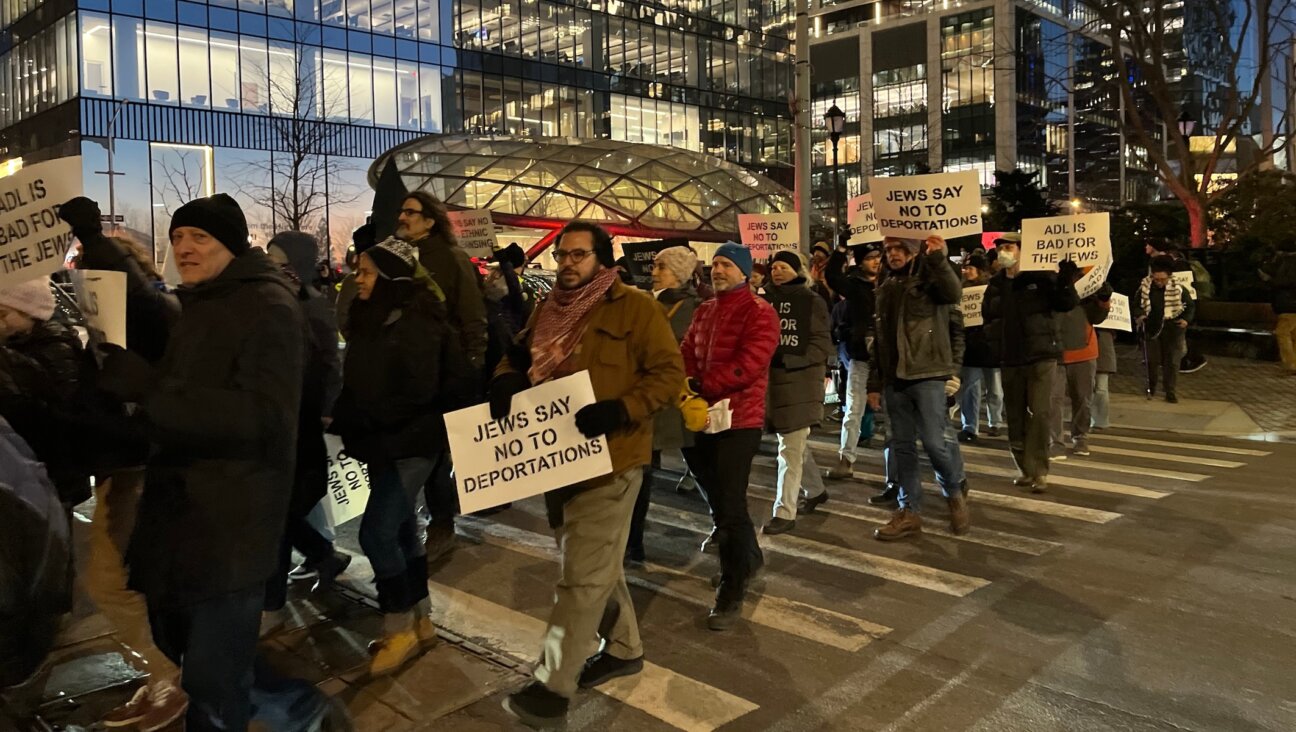
Fast Forward Trump administration restores student visas, but impact on pro-Palestinian protesters is unclear
-
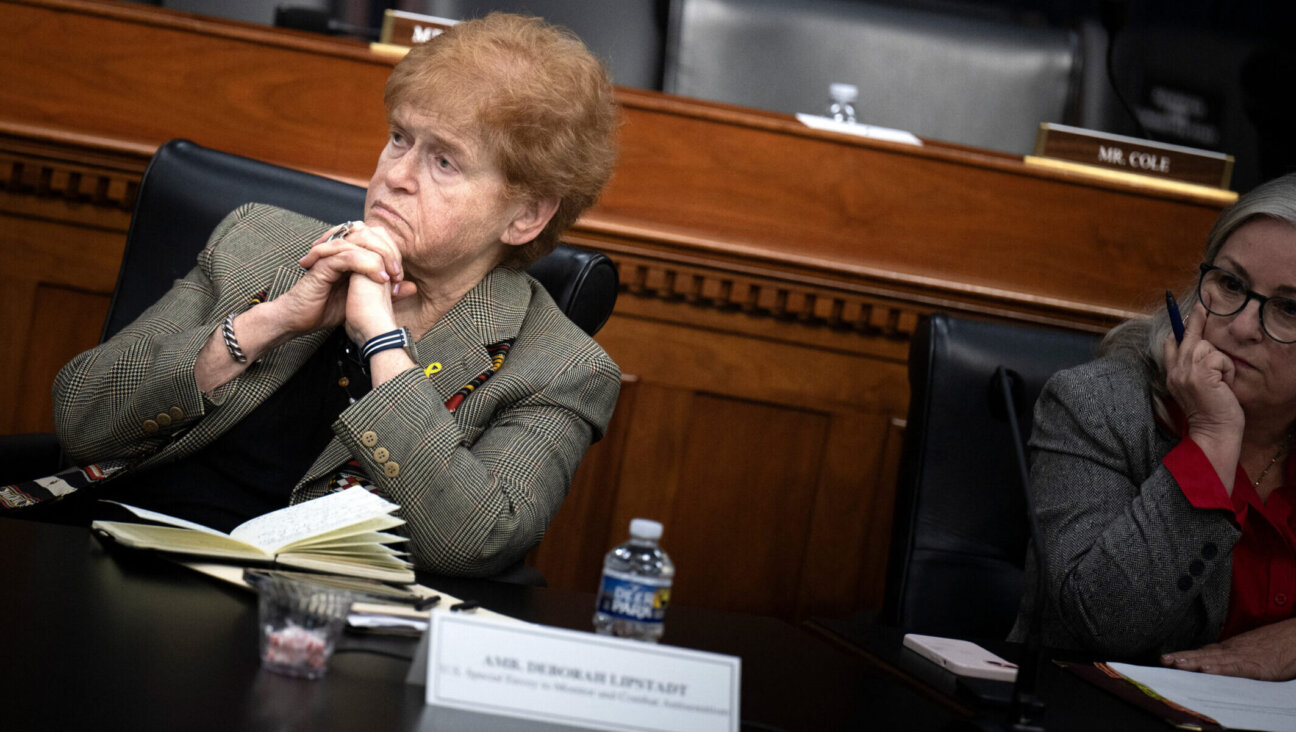
Fast Forward Deborah Lipstadt says Trump’s campus antisemitism crackdown has ‘gone way too far’
-
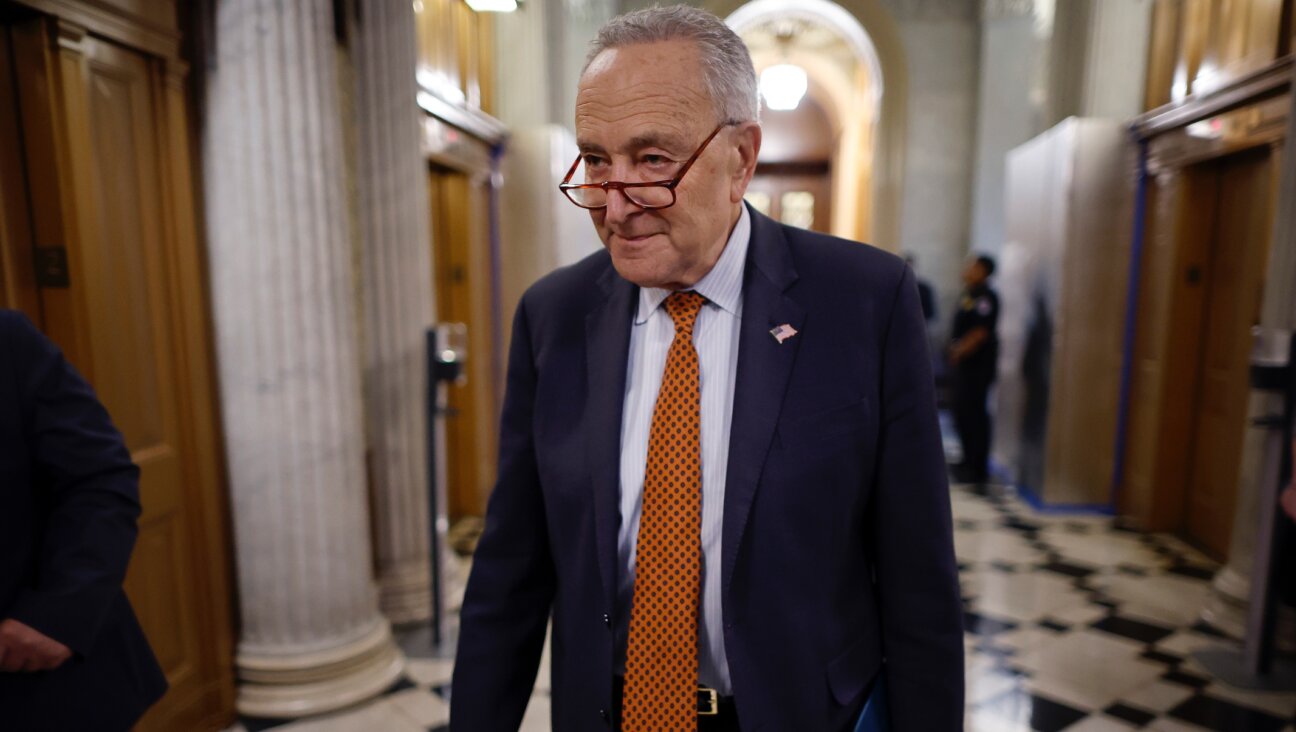
Fast Forward 5 Jewish senators accuse Trump of using antisemitism as ‘guise’ to attack universities
-

Fast Forward Jewish Democratic Rep. Jan Schakowsky reportedly to retire after 26 years in office
-
Shop the Forward Store
100% of profits support our journalism
Republish This Story
Please read before republishing
We’re happy to make this story available to republish for free, unless it originated with JTA, Haaretz or another publication (as indicated on the article) and as long as you follow our guidelines.
You must comply with the following:
- Credit the Forward
- Retain our pixel
- Preserve our canonical link in Google search
- Add a noindex tag in Google search
See our full guidelines for more information, and this guide for detail about canonical URLs.
To republish, copy the HTML by clicking on the yellow button to the right; it includes our tracking pixel, all paragraph styles and hyperlinks, the author byline and credit to the Forward. It does not include images; to avoid copyright violations, you must add them manually, following our guidelines. Please email us at [email protected], subject line “republish,” with any questions or to let us know what stories you’re picking up.









